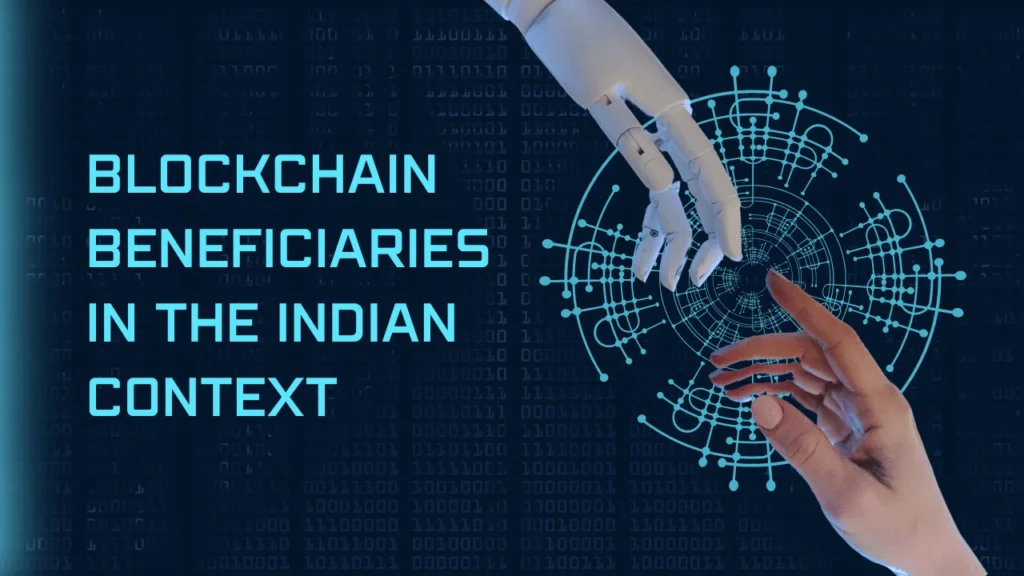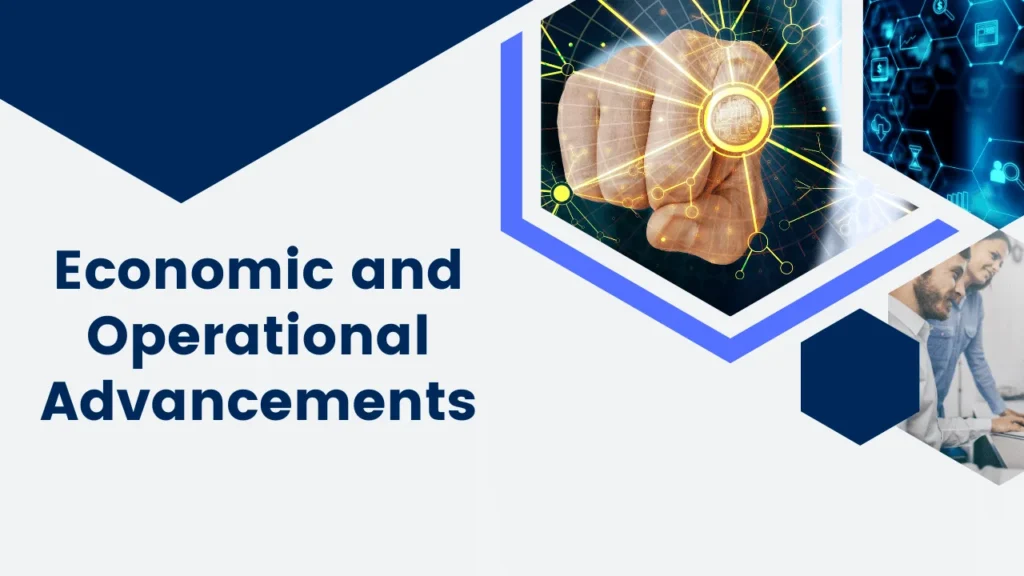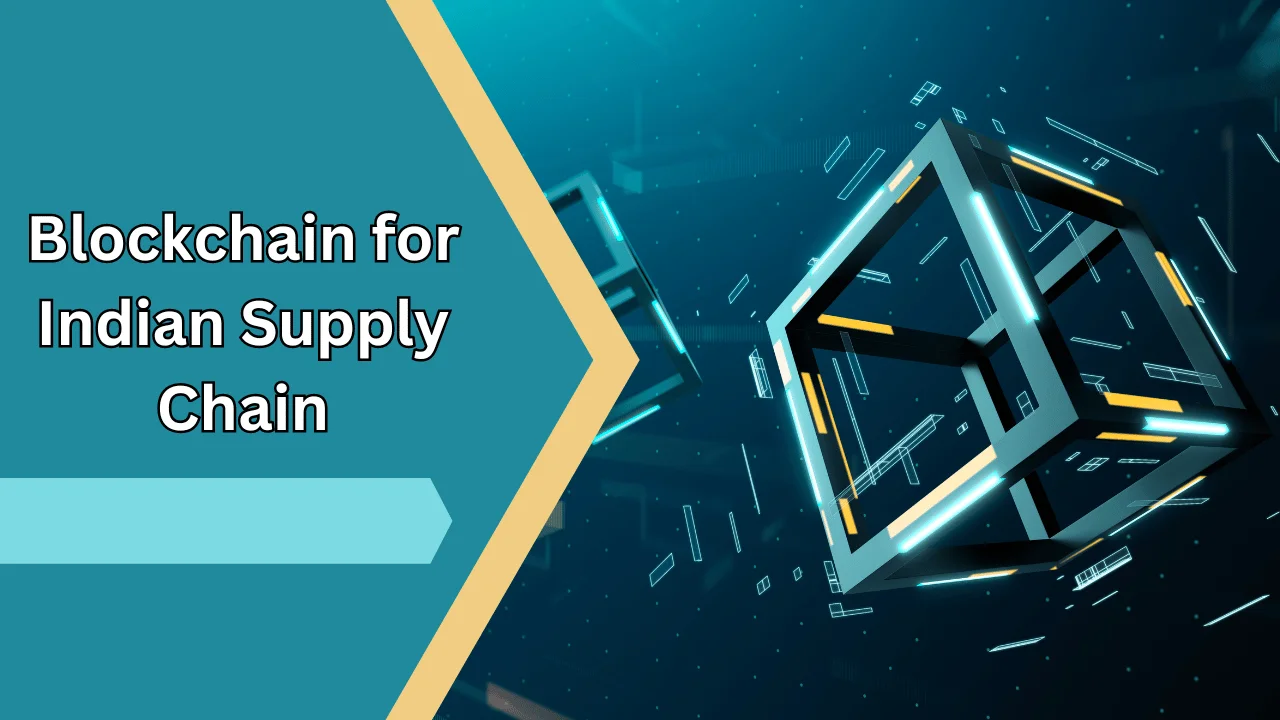In the realm of India’s sprawling and intricate supply chain, where efficiency and reliability are paramount to sustaining the nation’s economic vitality and meeting the demands of its massive population, the integration of transformative technologies is imperative. Among these innovations, blockchain emerges as a beacon of promise, poised to revolutionize the landscape with unprecedented transparency, efficiency, and security. Specifically tailored for the intricacies of the Indian supply chain, blockchain technology holds the key to addressing longstanding challenges in crucial sectors such as dairy and agriculture. By mitigating issues like food fraud, contamination, and logistical inefficiencies, blockchain is on the verge of ushering in a new era of food safety, traceability, and mutual trust among all stakeholders. In leveraging blockchain for Indian supply chain management, we anticipate a paradigm shift that will redefine industry standards and foster sustainable growth and prosperity.
Blockchain Beneficiaries in the Indian Context

Everyone involved in the supply chain, from producers and distributors to retailers and consumers, can benefit from blockchain technology due to its decentralized nature. For the Indian context, this is especially important because SMEs rule the dairy and agriculture industries. When trying to access markets, set fair prices, or become financially included, these entities often encounter obstacles. Blockchain technology provides a lifeline by facilitating trustworthy and transparent transactions, cutting out middlemen, and distributing value evenly throughout the supply chain. Also, blockchain records the product’s path from farm to fork in a verifiable way, which is great for customers who are worried about the food’s authenticity and safety.
Improving Dairy Product Traceability
Decentralized Dairy Supply Chain
With blockchain technology, the dairy supply chain can be managed in a decentralized manner, eliminating the need for a central authority to control all of the data. Because of this openness, the journey of dairy products from farm to fork can be followed in real time. Protecting consumer health and boosting trust in dairy brands, this system allows for the rapid identification and isolation of contaminated products, greatly reducing the risks of contamination and adulteration.
Secure Food Supply Chain Technology
The blockchain’s built-in security features will revolutionize the Indian dairy industry. Blockchain makes sure that data on the supply chain is unchangeable by using cryptographic methods to secure it. Preventing food fraud, like the sale of fake dairy products, which are harmful to consumers’ health and damage their faith in dairy brands, requires this level of security.
Food Safety Blockchain Solutions
By creating an immutable and transparent record of all transactions in the supply chain, blockchain solutions are crucial in improving food safety. The complete history of a product can be quickly accessed from this, since it contains information about its production, processing, storage, and distribution. With these features, it’s much simpler to carry out audits, comply with food safety regulations, and respond quickly to safety breaches.
Blockchain to Prevent Food Fraud
Instances of adulteration impacting the quality and safety of dairy products highlight the substantial challenge of food fraud in India. By allowing the traceability of each product’s journey, blockchain technology tackles this issue directly. Because it is now much easier to track down the origins of adulteration, this traceability serves as a disincentive to fraudulent activities.
Contamination Detection Blockchain
Accelerated detection and response to contamination incidents are made possible by blockchain technology. Any contamination point can be swiftly located by keeping a secure and immutable record of the supply chain. This helps in finding and fixing the sources of contamination, which in turn prevents similar incidents in the future, and it also permits the rapid recall of impacted products.
Economic and Operational Advancements

Economic Viability Blockchain Dairy Farms
The financial sustainability of India’s dairy farms is significantly affected by blockchain technology. More efficient distribution of resources is possible with blockchain technology because it streamlines the supply chain and reduces reliance on intermediaries. The overall economic sustainability of dairy farming in India is enhanced by this efficiency, which reduces operational costs and ensures a better price for producers and consumers.
Operational Efficiency Blockchain Supply Chain
Integrating blockchain technology into the supply chain greatly improves efficiency. There is less room for human error and more automation with blockchain because it records all transactions transparently and automates transactions. The supply chain is accelerated and costs are reduced as a result of this enhanced efficiency, which strengthens the dairy sector and makes it more competitive.
Sustainability and Quality Enhancement
Sustainability Blockchain Food Supply
Blockchain technology improves the food supply chain’s sustainability while also helping with operations and the economy. More sustainable farming practices are supported by blockchain technology, which allows for more efficient use of resources and reduces waste through improved traceability and reduced contamination. Customers value businesses with a strong commitment to sustainability more and more, and it can set them apart from competitors.
Food Quality Improvement Blockchain
Lastly, blockchain technology is essential for enhancing the supply chain quality of food items in general. Maintaining stringent quality control standards throughout the supply chain is made easier with blockchain technology, which ensures transparency and traceability. This does double duty: it increases consumer trust in dairy products’ safety and quality while also assisting in the elimination of quality degradation sources.
Revolutionizing Transparency and Trust
Transparency in the Supply Chain Digital Dairy
The Indian dairy supply chain has entered a new age of transparency with the adoption of blockchain technology. All parties involved can view the recorded transactions on a public ledger thanks to this technology, which covers everything from dairy farm feed to cold storage logistics. In addition to fostering trust, this level of openness gives customers the information they need to make educated choices regarding the dairy products they buy.
Adulteration Traceability Blockchain
In the fight against the pervasive problem of adulteration in the dairy industry, the traceability feature of blockchain technology is especially useful. Stakeholders can pinpoint potential points of adulteration by enabling detailed tracking of the product’s journey. The integrity of the dairy products and the health safety of the consumer base depend on this level of traceability.
Nutritional Value Verification Blockchain
People want more precise data on the nutritional value of the food they buy because they are more concerned about their health. Because blockchain stores immutable data on the production and processing methods used, nutritional values can be more easily verified. These methods have a direct impact on the nutritional profile of dairy products. By fostering open and honest practices in food production, this not only guarantees that consumers are getting high-quality food, but it also contributes to a healthier society.
Enhancing Economic Benefits and Efficiency
Revenue Boost Dairy Blockchain
Businesses and farmers in the dairy industry stand to gain a substantial amount of money from the use of blockchain technology into the supply chain. Producers can improve their profit margins by cutting out middlemen and lowering transaction costs. Additionally, producers can charge more for their premium products thanks to blockchain’s capacity to guarantee product authenticity and quality.
Counterfeit Dairy Products Prevention Blockchain
The credibility and legitimacy of the dairy sector are seriously compromised by the prevalence of fake dairy products. To combat this, blockchain technology has emerged as a decentralized ledger that cannot be altered. There can be far less counterfeit goods on the market if each product comes with a digital passport that verifies its authenticity.
Operational Efficiency Blockchain Supply Chain
By automating and streamlining formerly manual processes, blockchain technology improves operational efficiency. It saves a lot of time and energy because there is only one place to look for the truth regarding all transactions. The dairy industry as a whole benefits from this simplified procedure because it reduces costs and improves the movement of goods throughout the supply chain.
Fostering Sustainability and Quality
Sustainability Blockchain Food Supply
More efficient use of resources and less waste can be achieved through the use of blockchain technology in the food supply chain, leading to sustainability. It promotes more accountable and sustainable practices by enabling closer tracking of the environmental effect of supply chain operations. This dedication to sustainability is in line with the growing demand for eco-friendly products among consumers and is also good for the environment.
Food Quality Improvement Blockchain
Improving food quality is one of blockchain’s most important uses. The implementation of quality control measures is guaranteed at every stage of the process thanks to the clear documentation of the entire supply chain. Because of this, the quality of dairy products is greatly enhanced, which satisfies the increasing demands of consumers for safe, high-quality food.
Future Prospects and Challenges
Future of Blockchain Technology
There is tremendous potential for blockchain technology to transform the supply chains of India’s agricultural products. Better solutions that integrate with other technologies, such as the Internet of Things (IoT), for real-time monitoring and analytics, and that address transparency and traceability should be available as the technology develops and adoption rises. The agricultural supply chains will become even more efficient, secure, and environmentally friendly as a result of this change.
Regulatory Considerations for Blockchain
Regulators in India will need to be carefully navigated before the food industry can use blockchain technology. In order for blockchain technology to be widely used, it is essential to establish standards for data privacy, security, and interoperability. Additionally, it is critical to ensure compliance with existing food safety regulations. It will be crucial for regulatory agencies, industry stakeholders, and technology providers to work together to foster innovation.
FAQs
1. How does blockchain enhance food safety in India’s dairy sector?
By creating an immutable and transparent record of the whole supply chain, blockchain technology improves food safety by facilitating the rapid detection and removal of tainted goods.
2. Can blockchain technology prevent food fraud in India?
Because it is now easier to trace the origin and journey of dairy products, blockchain’s transparency and traceability do help deter food fraud.
3. What are the economic benefits of blockchain for Indian dairy farms?
Dairy farms can now compete more economically thanks to blockchain technology, which cuts out middlemen, speeds up transactions, and guarantees fair pricing.
4. How does blockchain contribute to the sustainability of the food supply chain?
Blockchain technology enables more sustainable supply chain management and agricultural practices by increasing resource efficiency and decreasing waste.
5. What challenges face the adoption of blockchain in India’s dairy supply chain?
Integrating technology, overcoming regulatory obstacles, collaborating with stakeholders, and guaranteeing the scalability of blockchain solutions are all challenges.
Also Read: Blockchain Investment Opportunities India
Conclusion
Blockchain for Indian Supply Chain has the potential to be a game-changer in the dairy industry. This transformative technology promises to overhaul India’s supply chain, bringing about increased transparency, traceability, and operational efficiency. With Blockchain for Indian Supply Chain, stakeholders can track products from farm to table, ensuring food safety and bolstering consumer trust. Moreover, this innovation holds the key to addressing the complexities inherent in India’s supply chain, paving the way for enhanced productivity and socioeconomic development. As the nation embraces Blockchain for Indian Supply Chain, it embarks on a journey toward a more resilient and prosperous future.

Timothy Jensen is an expert writer who specializes in the world of cryptocurrencies, including blockchain technology and Bitcoin. He has a passion for explaining complex topics in an easy-to-understand way. Timothy’s work aims to demystify the digital currency landscape for his readers.

